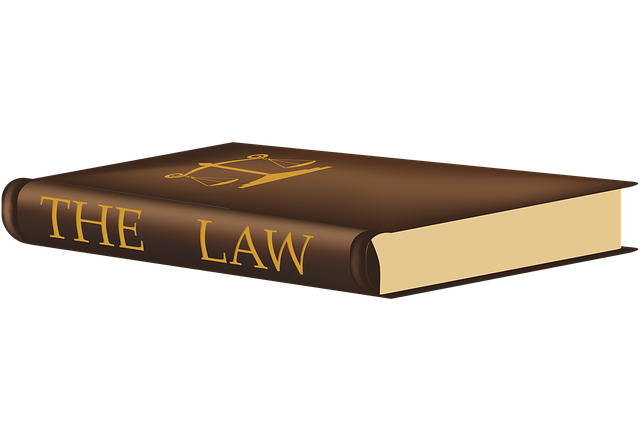Finance crime probes, focusing on fraud, corruption, and money laundering, require meticulous scrutiny of financial transactions. The Miranda Rights, a cornerstone of criminal law established by US Supreme Court ruling, protect individuals from self-incrimination and ensure procedural fairness during investigations. Understanding the timing and manner of Miranda rights administration is vital for successful defense strategies in white-collar and economic crimes. Law enforcement must document evidence while adhering to Miranda Rights, while accused individuals face complex legal strategies demanding tailored defenses. Notable cases illustrate the dynamic interplay between authorities and financial institutions, emphasizing the importance of strict adherence to legal requirements.
“Uncovering financial fraud and crimes requires meticulous investigation, and at the heart of these inquiries lie Miranda Rights in Criminal Proceedings. This article offers a comprehensive understanding of finance crime probes, shedding light on the crucial role of Miranda Rights. We explore how and when these rights are invoked during criminal investigations, delving into their implications for both law enforcement and accused individuals. Prepare to navigate through case studies that highlight some notable examples of successful finance crime probe operations.”
- Understanding Finance Crime Probes: A Comprehensive Overview
- The Role of Miranda Rights in Criminal Investigations
- When and How Are Miranda Rights Read to Suspects?
- Implications for Law Enforcement and Accused Individuals
- Case Studies: Notable Examples of Finance Crime Probes
Understanding Finance Crime Probes: A Comprehensive Overview

Finance crime probes are a critical aspect of modern legal systems, delving into the complex world of financial transactions to uncover illegal activities. These investigations often involve intricate networks and sophisticated schemes, requiring meticulous scrutiny. The primary goal is to ensure fairness and transparency in economic sectors while safeguarding the interests of the philanthropic and political communities. By employing various tools and techniques, law enforcement agencies aim to expose fraud, corruption, money laundering, and other financial crimes, thereby maintaining the integrity of the justice system.
A key element in these proceedings is understanding the legal rights of individuals involved. The Miranda Rights in criminal proceedings serve as a cornerstone, ensuring suspects are informed of their constitutional privileges. This fundamental practice guarantees that general criminal defense strategies can be effectively employed to protect against self-incrimination and safeguard legal rights. Moreover, it enables defendants to navigate the complexities of financial crime investigations while avoiding indictment by providing a clear framework for their legal representation.
The Role of Miranda Rights in Criminal Investigations

The Miranda Rights play a pivotal role in criminal investigations by safeguarding the rights of individuals accused of financial crimes. This constitutional right, established in the US through the landmark case Miranda v. Arizona, ensures that suspects are informed of their legal protections before any interrogation. When invoked, these rights provide a defendant with the knowledge that anything they say can and will be used against them in court, protecting them from making statements that could lead to a complete dismissal of all charges.
In financial crime probes, where complex financial transactions and intricate accounting may be involved, the Miranda Rights become even more crucial. They ensure that suspects are not coerced into providing evidence or admitting guilt, thereby preserving their right to due process. An unprecedented track record of successful cases has proven the effectiveness of these rights in avoiding indictment and ensuring a fair trial for those under investigation.
When and How Are Miranda Rights Read to Suspects?

In the context of finance crime probes, particularly involving white-collar and economic crimes, understanding when and how Miranda rights are read to suspects is crucial for navigating criminal proceedings. The Miranda warning, a fundamental aspect of criminal law, informs individuals of their constitutional rights during police custodial interrogation. This process ensures that suspects are aware of their right to remain silent, the potential consequences of waiving this right, and their right to an attorney.
The reading of Miranda rights typically occurs when a suspect is taken into custody or detained by law enforcement. An officer must inform the suspect that they have the right to remain silent, that anything said can be used as evidence, and that they are entitled to consult with an attorney before and during questioning. This cautionary measure helps protect suspects from making statements that could later be used against them in court. Across the country, winning challenging defense verdicts often hinges on the proper administration of Miranda rights, ensuring fair treatment and procedural integrity throughout criminal investigations.
Implications for Law Enforcement and Accused Individuals

Finance crime probes, including those involving white-collar and economic crimes, have significant implications for both law enforcement and accused individuals. For law enforcement agencies, these investigations require meticulous documentation and evidence collection to ensure fairness and transparency in criminal proceedings. This includes a thorough understanding of the Miranda Rights in criminal cases, which guarantees an individual’s right to remain silent and to consult with legal counsel. Accused persons face complex challenges, requiring robust general criminal defense strategies tailored to specific white-collar defense needs.
Such probes often uncover intricate financial schemes and require specialized knowledge to navigate. Individuals accused of white-collar crimes must carefully consider their options, as these cases can have severe consequences. A skilled defense attorney is crucial in protecting the rights of the accused, providing legal guidance through the labyrinthine aspects of financial investigations. This ensures that any evidence used against them is admissible and obtained lawfully, safeguarding their interests throughout the process.
Case Studies: Notable Examples of Finance Crime Probes

In the realm of finance crime probes, several notable examples illustrate the intricate dance between law enforcement and financial institutions. One such case involves a prominent investment bank accused of fraud, money laundering, and violating securities regulations. The probe began with an anonymous tip, leading to a detailed investigation that uncovered a complex web of illicit transactions. As evidence mounted, the bank’s executives faced Miranda Rights in criminal proceedings, marking a significant turning point in their respective business strategies and legal defenses.
Another standout instance centers around a tech startup alleged to have engaged in tax evasion and insider trading. The general criminal defense team argued that the company’s actions were misconstrued, highlighting regulatory ambiguities. This case reached jury trials, where the jurors delved into the nuances of financial records and witness testimonies. Despite the startup’s innovative nature, the outcome underscored the importance of adherence to both letter and spirit of the law, with implications for similar respective businesses navigating complex legal landscapes.
In conclusion, finance crime probes demand a thorough understanding of legal protocols, especially the pivotal role of Miranda rights. This article has provided an extensive overview, delving into the practical application of these rights during criminal investigations and their significant implications for both law enforcement and accused individuals. By examining case studies, we’ve highlighted the importance of adhering to proper procedures, ensuring fairness, and upholding constitutional protections in the pursuit of justice within finance crime cases.






